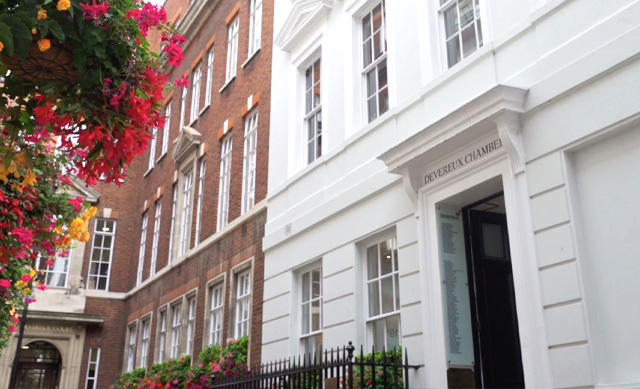Hull City AFC (Tigers) Ltd v HMRC
In a Decision, released on 22/03/19, the First-tier Tax Tribunal (Judge Jonathan Cannan) ruled that payments made by a (then Premier League) football club to an offshore service company, purportedly in respect of a player’s image rights, constituted the player’s earnings.
The judgment provides the first comprehensive judicial guidance in almost 20 years as to how the Tax Tribunals should approach the question of whether image rights payments constitute “earnings” and the circumstances in which a Tribunal is likely to find that such payments were in fact disguised remuneration.
The Facts
Having recently been promoted to the Premier League for the first time in its history, Hull City signed former Brazilian international, Geovanni, in July 2008 on a free transfer, following his release by his previous club Manchester City at the end of the 2007/08 season. Four months after the signing, Hull entered into a separate “Image Rights Agreement” in respect of Geovanni’s overseas image rights with Joniere Ltd, a service company registered in the BVI. In the period December 2008 to July 2010, Hull paid Joniere a total of £440,800, purportedly under the terms of two such “image rights” agreements. HMRC contended that these payments represented earnings of Geovanni and that Hull was accordingly liable to account for tax and national insurance in respect of them.
The Judgment
The FTT held that it was necessary to look at the substance of the sums paid, not their form, in order to determine whether, realistically viewed, the payments were emoluments as a reward for Geovanni’s past, present or future services as a footballer, or whether they were in fact consideration for the licensing of his overseas image rights. The Tribunal held that it was not necessary to find that the agreements were a sham or pretence in order for HMRC’s case to succeed, nor was it necessary for it to deploy the Autoclenz approach to disregard written terms which did not genuinely reflect the parties’ true intentions.
In concluding that the payments, viewed realistically, were earnings, the Tribunal made the following notable findings of fact:
Whilst it is not just players in the “elite group of recognisable sportspeople” who have image rights with an overseas commercial value, what makes a player sufficiently recognisable for their image rights to be valuable will include: their talent; the league in which they play; the team for which they play and possibly other personal attributes (such as their nationality).
Clubs who intend to acquire and exploit players’ image rights would be well advised to keep negotiation of that agreement separate to the salary negotiation and to ensure that the valuation of image rights is documented by reference to a business case for the initial acquisition, together with analysis monitoring the effectiveness of the exploitation of the rights over the period of the agreement.
Hull did not, at the time, have the experience, resources or ability to exploit the commercial opportunities associated with players’ overseas image rights. The club’s two principal sponsors were based in Hull and yet the domestic market was, notably, not covered by the image rights agreements.
No due diligence had been carried out by Hull in relation to Joniere and there was no evidence that the Club had ever taken steps to ascertain whether or not Joniere actually owned Geovanni’s image rights. In the circumstances, nobody at the club could reasonably have believed at the time that Geovanni’s overseas image rights had any commercial value.
Geovanni’s basic wage at Hull under his playing contract was £748,800 and the annual “image rights” payment of £187,200 was exactly 25% of that sum. However, there was no reliable evidence at all as to how the parties had arrived at quantum of the annual image rights payment and no valuation advice had been sought or received by Hull at the time.
Viewing the facts realistically, the Tribunal held that the reason that Hull took no steps to exploit Geovanni’s overseas image rights was because it never had any clear intention, plan or real interest in commercially exploiting those rights.
The payments made in purported connection with overseas image rights were in fact made in order to encourage Geovanni initially to enter into – and then to extend – his playing contract with Hull. In short, they were a reward for his services as a footballer and formed part of his earnings.
This decision is the first time the FTT has considered the taxation of payments purportedly made in connection with a footballer’s image rights since 2000 (in Sports Club Plc v HM Inspector of Taxes [2000] STC (SCD) 443). It is likely to be of widespread interest and application to clubs, players, agents and advisors in the football industry, and in connection with the negotiation of image rights contracts in sport and entertainment more generally.
Akash Nawbatt QC and Sebastian Purnell appeared on behalf of the successful Respondent, instructed by the General Counsel and Solicitor to HMRC.
To read the full Decision, please click here.
Akash's principal areas of practice are tax and employment law. He is instructed in complex and high value litigation, and has appeared before the Tax Tribunals, the High Court, Court of Appeal, House of Lords and the Supreme Court. He is ranked as a leading silk for tax and employment by both Chambers & Partners and Legal 500, and is described as "A fearsome cross-examiner," who "really gets to grips with the detail of a case."
Seb has appeared in the First-tier Tribunal, Upper Tribunal, High Court and Court of Appeal in a broad range of tax litigation encompassing statutory appeals and judicial review proceedings. Seb is ranked as a leading junior in tax and sport by Legal 500 which describes him as “thorough, calm and creative, with excellent experience in complex sports tax cases”.
